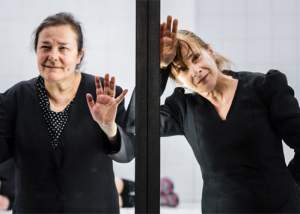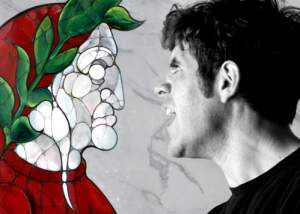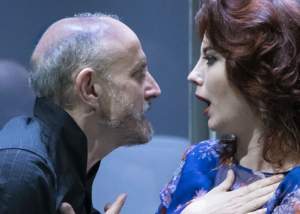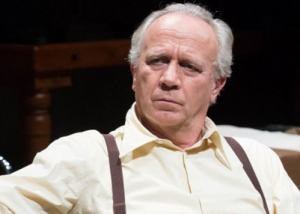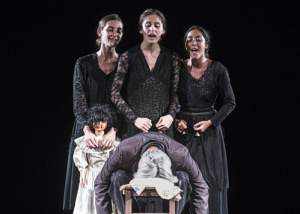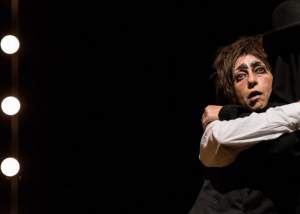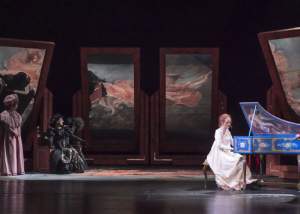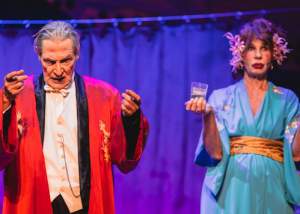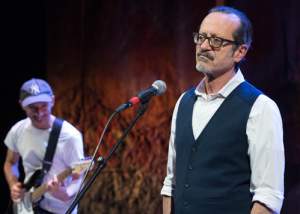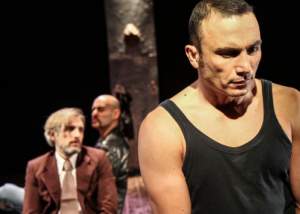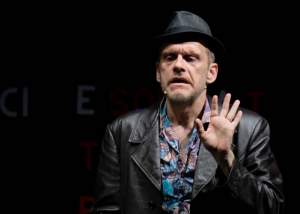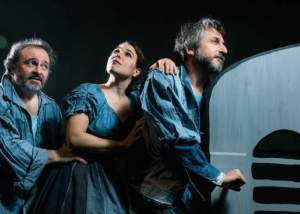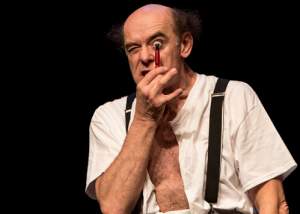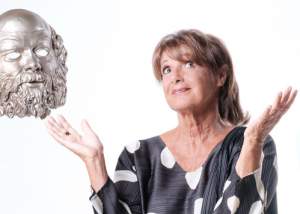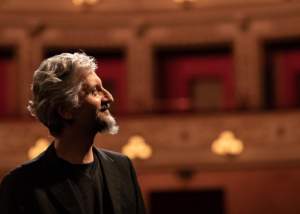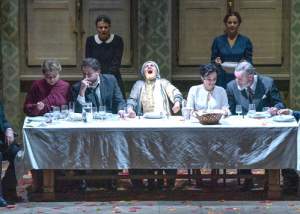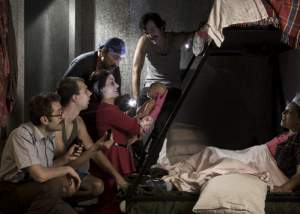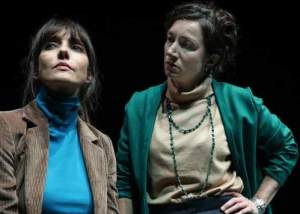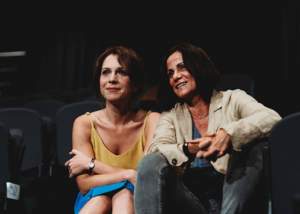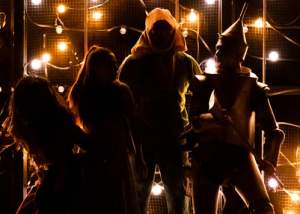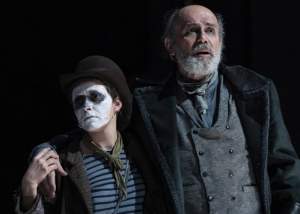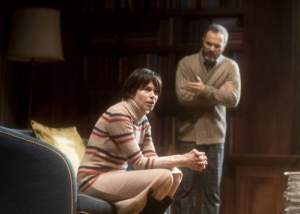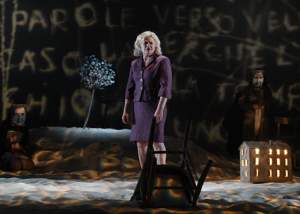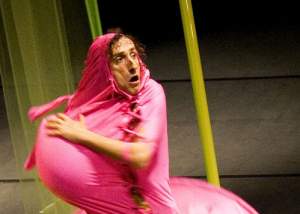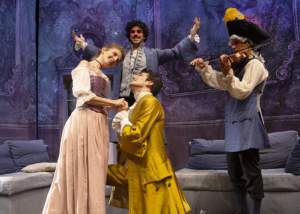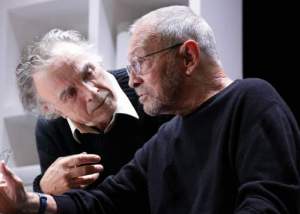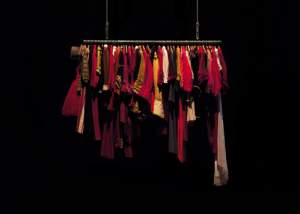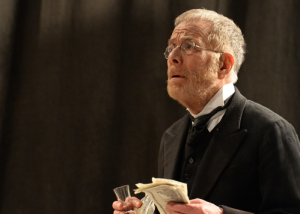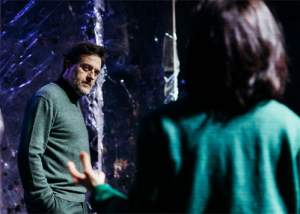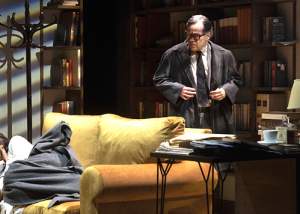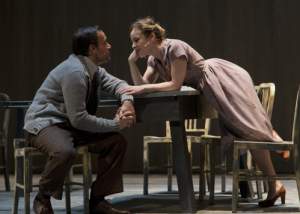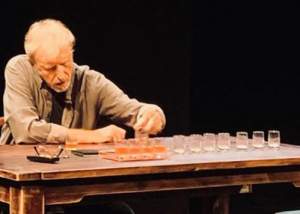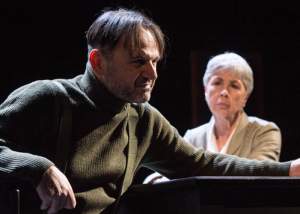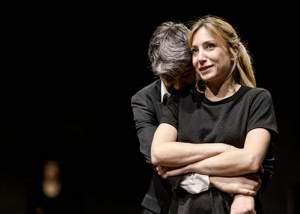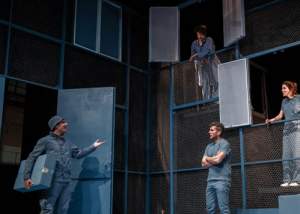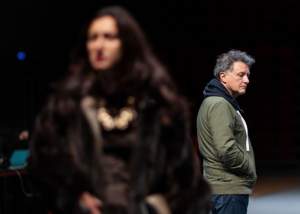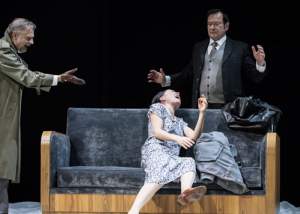Another new and productive opportunity for interaction is Alessandro Serra, who will be working with us at a time of great maturity in his professional career. He is an all-around artist and multi-faceted talent – director, author, set designer, light designer, sound designer – and after his internationally acclaimed Macbettu, he will be returning to Shakespeare with an eagerly awaited new production of The Tempest.
Valerio Binasco will continue his review of the classical repertoire, which he started when first appointed to the helm of the TST. He will stage three titles. and between December and January, the Carignano will be transformed into a forest to host – somewhat unseasonably – what is possibly the most famous play of all time, A Midsummer Night’s Dream. Whereas in the spring, the Fonderie Limone will stage Iphigenia and Orestes, a diptych of Euripides’ tragedies that will trace an imaginative journey exploring children’s pain and the darkness of loneliness within a family. Filippo Dini, meanwhile, will have the honour of opening the autumn season at the Carignano with a new rendering of Ibsen’s iconic Doll’s House, a manifesto of feminism. Furthermore, in the spring, the Gobetti will stage the national premiere of his Ice by Bryony Lavery, a psychological thriller about paedophilia, a grim feature of our troubled society.
2022 celebrates the 400th anniversary of Molière’s birth, and to mark the occasion, we have asked Leonardo Lidi to stage The Misanthrope. We believe he is best qualified to bring new life to a highly generational play. The production will be part of the official programme of international celebrations and will complement the major conference organised by the University of Turin to coincide with the performances.
As to co-productions, we are delighted to announce that Mario Martone will be returning to the Carignano with his latest stage offering, Goliarda Sapienza’s Il filo di mezzogiorno (Midday Thread). The work is a fiery psychoanalytical diary and a restless, intimate biography by its eccentric Catania author. We will also be presenting Peachum. Un’opera da tre soldi (Peachum. A Threepenny Opera), Fausto Paravidino’s new piece that projects Brecht’s masterpiece onto our contemporary society, and Emanuele Aldrovandi’s L’estinzione della razza umana (The Extinction of the Human Race) that portrays the daily lives of two couples’ devoured by their contradictions. Lastly, director Emiliano Bronzino will highlight Matthias Martelli’s lively acting talent with Dante fra le fiamme e le stelle (“Dante, between the Flames and the Stars”), a performance celebrating the Supreme Poet’s 700th anniversary, while Elio De Capitani will be directing and starring in Orson Welles’ rarely performed Moby Dick, drawn from Melville.
Turning to our guest performances, one can easily claim that the upcoming Season will include Italy’s most important players including stars like as Umberto Orsini, Giulia Lazzarini, Anna Maria Lazzarini, Anna Maria Guarnieri, Renato Carpentieri, Ottavia Piccolo, Franco Branciaroli, Isa Danieli, Milvia Marigliano, Natalia Marigliano and Natalino Balasso. Guest directors will include Antonio Latella, Carlo Cecchi, Roberto Andò, Gabriele Lavia, Alessandro Gassmann, Pier Luigi Pizzi, Arturo Cirillo, Lisa Ferlazzo Natoli, Geppy Gleijeses and Serena Sinigaglia as well as three great post-dramatic theatre exponents like Emma Dante, Rezza and Mastrella, and Ascanio Celestini and Lella Costa, both of whom are leading narrative theatre names. We will also be featuring actresses and actors who have been successful in bridging the gap between the stage and the screen: these include Paolo Pierobon and Donatella Finocchiaro, Sonia Bergamasco and Vinicio Marchioni, Deniz Özdoğan and Rocco Papaleo, Isabella Ragonese and Giuseppe Cederna, Francesco Di Leva and Enrico Ianniello, Stefania Rocca and Massimiliano Gallo. We will also present a strong contingent of our city’s best talents, including Michele Di Mauro and Jurij Ferrini, Olivia Manescalchi and Beppe Rosso, Marcido Marcidorjs and Famosa Mimosa.
With the coming season, our stages will once again welcome great international theatres and directors, including the Katona from Budapest, with its powerful version of Brecht’s The Caucasian Chalk Circle, while Kriszta Székely’s new production for the Stabile, to be staged in the autumn of 2022; the Teatro Nacional D. Maria II in Lisbon, with its production of Shakespeare’s Antony and Cleopatra in the acclaimed version by Tiago Rodrigues, recently appointed director of the Avignon Festival and currently one of the most sought-after directors internationally; lastly the prestigious Paris Odéon, returning to Turin with its director Stéphane Braunschweig’s new creation, Come tu vuoi mi vuoi (As You Desire Me) by Pirandello. Also of note is the fact that next October, the Stabile will host the General Assembly of the mitos21 network, whose members are the Gotha of European theatres.
Whilst promoting appreciation for repertory pieces is a vital principle of a national theatre such as ours, commissioning and programming contemporary work is no less crucial. Hence, the programme for the coming season will feature no less than 16 such works. Besides Fausto Paravidino and Emanuele Aldrovandi, already referred to above, the programme will also feature plays by Stefano Massini and Lucia Calamaro, Emma Dante and Ascanio Celestini,Giuliana Musso and Maurizio de Giovanni, Gabriele Di Luca and Mario Gelardi, Flavia Mastrella and Antonio Rezza as well as pieces by international playwrights, including Andrew Bovell from Australia, Bryony Lavery from the UK, Johnna Adams from the USA, Jordi Galceran from Catalonia and Csaba Székely from Romania.
Our theatre’s uniqueness lies in the specific traits of our resident and guest artists, the high quality of their productions and projects, together with our production capabilities and the breadth of our offering. Hence, seven new productions, five co-productions, four revivals, 32 guest performances, and a total of 619 curtain raisings, both at our theatres and on tour, are no mere outward show of strength. But, conversely, they are based on hard figures. They are proof of our commitment to generating employment, encouraging participation, and, at the same time, they testify to a spirit of courage, confidence, and passion. This is the spirit we have come to share with the community formed by our audiences. It is increasingly central to our cultural policies, and we have been strengthening our commitment to making our events ever more accessible. On the one hand, thanks to the Fondazione CRT, we can reconfirm the Un posto per tutti (A Seat for All) scheme, which provides access to our performances, especially for vulnerable and disadvantaged groups of people. On the other hand, through support from the Switch call for proposals launched by the Compagnia di San Paolo, we will install digital systems in our venues to allow foreign spectators and audiences with sensory impairments to attend performances.
Lastly, a word about the image by Dutch artist Gemmy Woud-Binnendijk’s that we selected for this new season. Her highly painterly style of photography successfully links two biblical archetypes to our contemporary era, thus enabling us to capture within it our thirst for knowledge and our humanity, both of which are fragile and sometimes contradictory. Yet, they form the very core of our essence and our first love, the theatre.
Lamberto Vallarino Gancia President
Filippo Fonsatti Director




